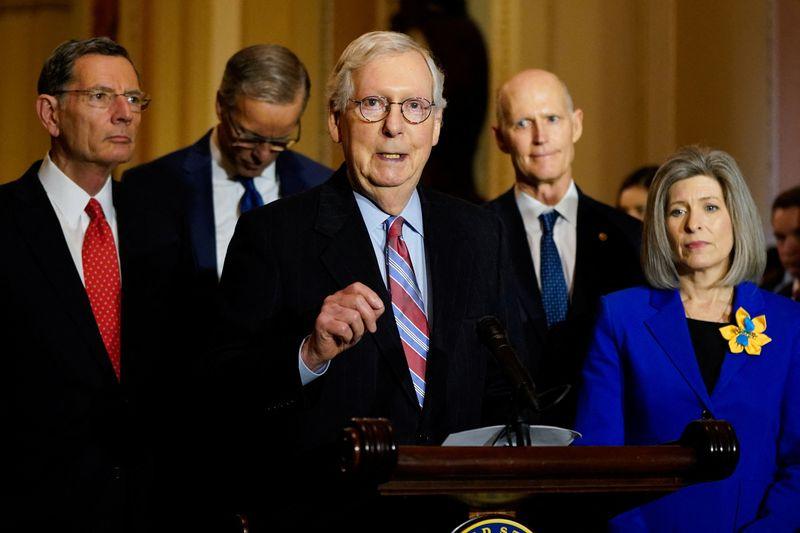
By David Morgan
WASHINGTON (Reuters) – The top Senate Republican and the architect of the party caucus’s campaign strategy were at odds on Tuesday over a controversial legislative plan intended to tell voters what to expect if Republicans capture control of the chamber in the November midterm elections.
The 11-point “Rescue America” plan proposed by Senator Rick Scott had already rankled many Republicans with proposals that would impose income taxes on Americans who currently earn too little to pay taxes and require all legislation enacted by Congress to sunset after five years.
But on Tuesday, Senate Republican leader Mitch McConnell made it clear that initiatives of the kind proposed by Scott would be out of the question.
“If we’re fortunate enough to have the majority next year, I’ll be the majority leader. I’ll decide, in consultation with my members, what to put on the floor,” McConnell said at a Republican leadership news conference that Scott also attended.
“Let me tell you what will not be a part of our agenda. We will not have, as part of our agenda, a bill that raises taxes on half of the American people and that sunsets Social Security and Medicare within five years. That will not be part the Republican Senate majority agenda,” he said.
Scott, who chairs the National Republican Senatorial Committee that oversees the Senate Republican campaign effort, had walked away before McConnell began speaking.
On Saturday, Scott told the Conservative Political Action Conference in Orlando, Florida, that Republicans would not deserve to govern if they won back the Senate majority and failed to pursue the policies put forward in his plan.
The Senate is currently split 50-50, with Democrats in control because Vice President Kamala Harris wields a tie-breaking vote. To retake the majority, Republicans would need support from independent voters, who party strategists fear could be put off by the Scott proposal.
A Scott spokesman said the senator proposed the framework on his own, not as the Senate Republican campaign chairman.
(Reporting by David Morgan; editing by Jonathan Oatis)
